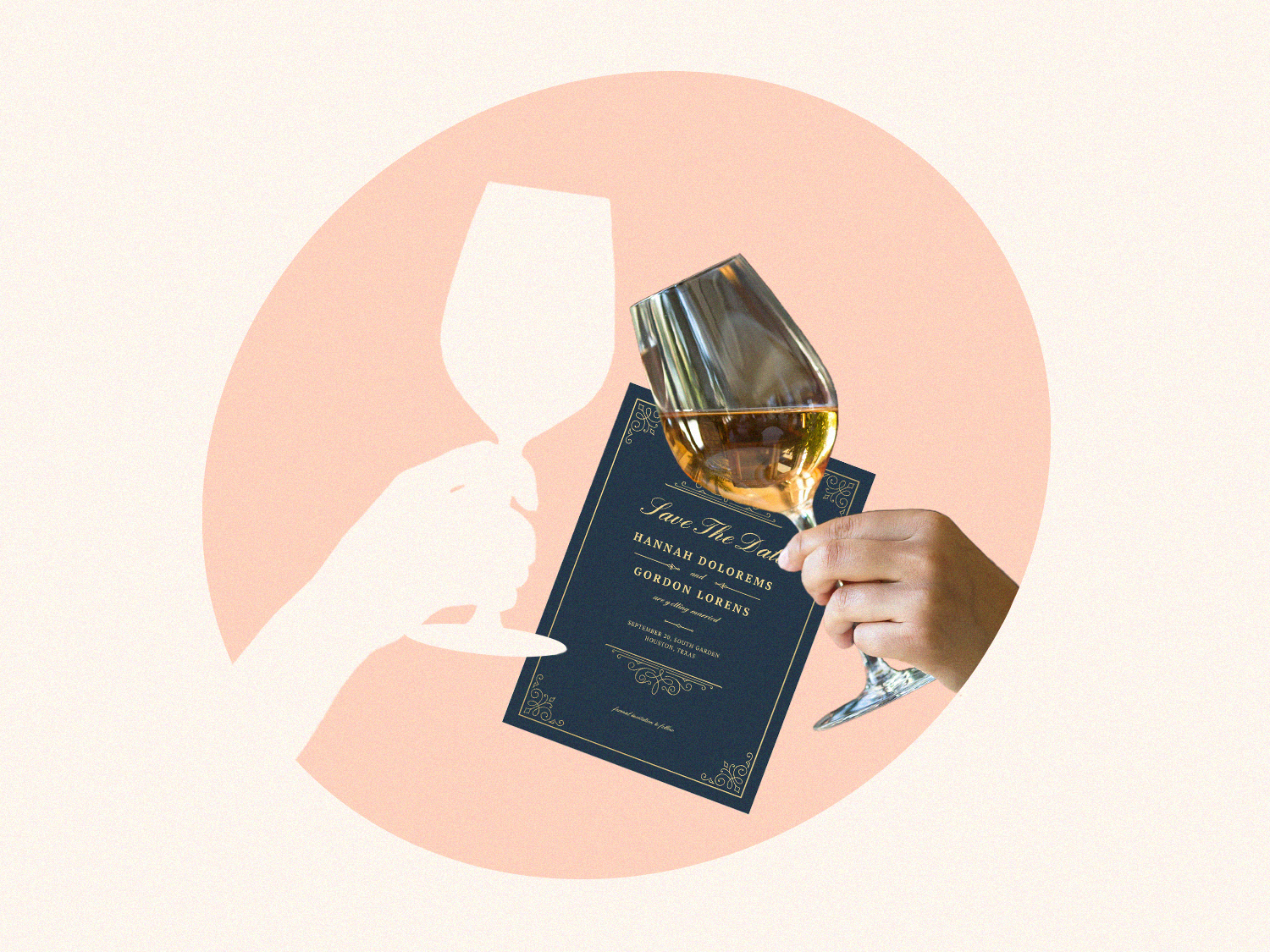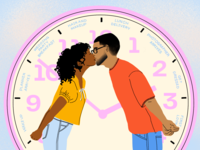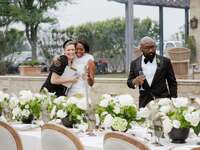What Time Do Weddings Usually Start? A Planner's Etiquette

As you probably know if you're in the throes of wedding planning, there are a lot of decisions to make and things to consider throughout the process—including what time do weddings usually start. The time of day you choose to host your wedding ceremony can significantly impact the overall tone and flow of your event. From early morning to late evening, each wedding time slot offers unique advantages and considerations. "It's so important to build in time for getting ready, dinner toasts and even transportation to take longer than you expect," notes Gina Jokilehto-Schigel, owner of Shi Shi Events in Cleveland, Ohio. "If you don't provide buffers, you run the risk of not being ready in time for photos, the kitchen serving cold food or delays in events due to transportation—all of which add extra stress to a day that is already full of adrenaline and emotion."
In this article:
- What Time Do Wedding Ceremonies Usually Start?
- What Time Do Wedding Receptions Usually Start?
- Do Weddings Start on the Hour or Half Hour?
- What Time Is the Best Time for a Wedding?
- What Start Time Do You Put on Wedding Invitations?
What Time Do Wedding Ceremonies Usually Start?
Traditionally, the most common wedding start times are in the afternoon between the hours of 2 p.m. and 5 p.m. or in the evening between 5 p.m. to 7 p.m., according to Susan Knittle, owner of SoSig Events in Midland, Texas. "When narrowing down the best start time for your wedding day, look over your guest list and consider them when making the decision—for example, the distance they will travel, work schedules, the need for babysitters, the school calendar and sports schedule as well as the proximity to religious holidays," she says. "After all, these should be the most special people in your life, and your goal should be to foster that relationship by considering their guest experience."
Of course, what time a wedding starts differs depending on the day of the week. For example, wedding ceremonies on a Friday benefit from a later start time of 6:30 p.m. to allow any guests that may need to come after work or take a half day to attend notes Jokilehto-Schigel. And Sunday weddings with an earlier start of 5 p.m. help guests who may have to be at work on Monday and would appreciate an end-of-night time around 10 p.m.
The time of year also impacts the ceremony start time due to the sunlight and sunset. "Where the sun sits in the sky can make some ceremony locations or configurations of guests really uncomfortable with the bright sun," says Samantha Leenheer, creative director at House of Joy in New York City. "Daylight savings can play a role in the timing of your ceremony as well, so be sure that it is early enough to still have natural light and for the remainder of the evening to progress naturally. "
What Time Do Wedding Receptions Usually Start?
Knittle recommends that the wedding reception timeline starts no later than one hour after the wedding ceremony unless you plan a host of activities to entertain your guests. "A normal gap occurs after the wedding ceremony and the official beginning of the reception to allow for couple and family photos," she says. "Leaving your guests to fend for themselves for an exhaustive amount of time with minimal bites and spirits doesn't provide a positive guest experience and should be avoided at all costs."
Catholic weddings often involve a significant gap between the ceremony and reception, commonly referred to as the "Catholic gap." This extended timeframe presents unique planning challenges, but also opportunities to create memorable guest experiences.
Do Weddings Start on the Hour or Half Hour?
When asked what time do weddings usually start, most wedding professionals agree that whether you start on the hour or the half-hour makes little to no difference. In fact, the best choice between the two is whichever suits your situation. "There is no etiquette around which is better but some couples choose to start on the half-hour so the minute hand is moving upwards symbolizing the growth of the couple's love," says Casey Cannon, owner of EBJ & Company based in Nashville, Tennesee. "Regardless of the start time, remember the most important thing is to begin the wedding on time."
Instead of choosing whether to start on the hour or the half-hour, figure out a time that allows the most time for photos. "For example, if you choose a 5:30 p.m. ceremony for an outdoor wedding and the sunset is around 6:15 p.m., you will not have any time for family photos post-ceremony," Cannon says. "This would require the couple to have a first look and get all of their formal family photos complete before the ceremony."
She also points out that the start time of your ceremony can also influence the end time of your wedding reception. "If you hire a DJ for four hours and they are playing your ceremony and reception music, you will need to make sure that your ceremony starts and the last song plays within those four hours or you may need to add on more time with your vendor," she adds.
What Time Is the Best Time for a Wedding?
Most wedding professionals we interviewed agreed that the most ideal start time for a wedding is 5:30 p.m. "Not only does this provide ample time in the day's schedule for vendors to stagger their setup times without being on top of one another, but it also provides for a more leisurely day for hair and makeup and allows for memory making which just isn't able to happen if the day is rushed," Knittle says. "A 5:30 p.m. start time also provides ample time to accomplish most all wedding activities, including cocktails, dinner and dancing, without your guests grumbling about hunger or being bored with endless amounts of unstructured time."
What Start Time Do You Put on Wedding Invitations?
Wedding professionals recommend putting the actual wedding start time on the wedding invitations, as it's the guests' responsibility to be timely. "If you have unique logistics, [like] a 10-minute walk from the parking lot, we recommend letting guests know about that on the wedding website or invitation so they can plan," Leenheer says. "Ultimately, the invitations are a guide to help your guests enjoy your wedding, so provide them with as much information as possible."























